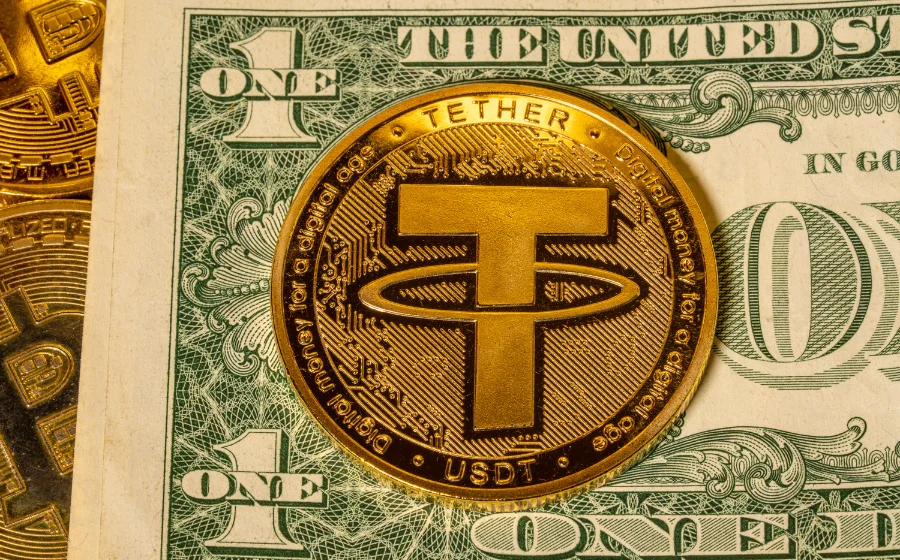
KEYTAKEAWAYS
- Bitcoin is a decentralized digital currency that enables peer-to-peer transactions without intermediaries, offering a unique blend of privacy, transparency, and security.
- The halving event in 2024 and the launch of Bitcoin spot ETFs are significant factors contributing to Bitcoin's rising value and increasing mainstream acceptance.
- Investing in Bitcoin carries risks such as price volatility and regulatory uncertainty, making it crucial for investors to conduct thorough research and assess their risk tolerance.

CONTENT
What is Bitcoin? The pioneer cryptocurrency, has significantly influenced the financial and technological landscapes since its inception. This detailed exploration delves into Bitcoin’s essence, its diverse applications, the profound impact it has made, and provides insights into its future trajectory. In just five minutes, let’s quickly get you acquainted with Bitcoin and its world-changing potential.
WHAT IS BITCOIN ?
Bitcoin (BTC), introduced in 2009 by the mysterious Satoshi Nakamoto, is a digital currency that operates without central authority, enabling peer-to-peer transactions and rewarding miners for securing the network. As the most recognized cryptocurrency, it has led to the creation of numerous other digital currencies and revolutionized the financial landscape. Bitcoin offers a glimpse into the history and mechanics of digital currencies and their applications in the modern digital era.
- Bitcoin stands distinct from services like Venmo and PayPal, which depend on the traditional financial system’s permissions and existing accounts for debit and credit. It operates on a decentralized basis, allowing any two individuals across the globe to exchange Bitcoin directly, bypassing banks, governments, or any other institutions.
- Transactions involving Bitcoin are meticulously recorded on the blockchain, akin to a bank’s ledger or a record tracking the flow of customer funds. Essentially, it serves as a comprehensive log of all transactions executed with Bitcoin.
- Diverging from a conventional bank ledger, the Bitcoin blockchain is decentralized and spread across the entire network. It’s beyond the control of any single entity, be it corporations, governments, or third-party organizations, enabling anyone to participate in the network.
- The total supply of Bitcoin is capped at a finite 21 million, making it a digital currency immune to inflation or manipulation by any means.
📌 5 KEY FEATURES
1. Decentralization
Bitcoin is maintained by a group of core developers and operated by a global network of specialized computers. Its integrity is upheld by a distributed and open-source network, making it owned by no one. The decentralized nature of Bitcoin means it is not significantly influenced by any single country or institution. Instead, each node in the network has equal power and responsibilities, ensuring that it cannot be altered for the interests of any particular government.
This means that Bitcoin is not controlled by any single entity or government, providing a level of independence and security unmatched by traditional currencies.
2. Limited Supply
Bitcoin’s issuance is controlled by an underlying algorithm, releasing new Bitcoins every hour at a diminishing rate until it reaches a total supply cap of 21 million by the year 2140.
With a maximum limit of 21 million, Bitcoin is considered a deflationary asset. This limited supply, akin to the scarcity of precious metals like gold, has led to Bitcoin being referred to as “digital gold,” contributing to its value appreciation.
3. Anonymity
In contrast to traditional banks that can access extensive personal information, Bitcoin offers greater privacy as wallets don’t need to be linked to identifiable data, keeping the owner’s identity largely anonymous. However, this anonymity has led to Bitcoin’s use in illegal activities such as drug trafficking and terrorism. Consequently, most countries have implemented regulations requiring exchanges to conduct Know Your Customer (KYC) procedures before allowing transactions, ensuring a balance between privacy and security.
4. Transparency
All Bitcoin (BTC) transactions are recorded on the blockchain, ensuring transparency in the network. Anyone can use the blockchain ledger to check the assets associated with a wallet address and view the progress and details of specific transactions.
Although Bitcoin offers a degree of anonymity, its transparency in wallet assets and transaction records makes it less ideal for criminals, terrorists, or money launderers. The visibility of all transactions and asset holdings on the blockchain ensures a level of accountability that discourages illicit activities.
5. Security
Bitcoin transactions are secured by cryptographic algorithms and require consensus from the network to validate transactions. This makes it extremely difficult to counterfeit or double-spend bitcoins.
Once Bitcoin is sent to someone, it cannot be retrieved unless the recipient decides to send it back. This means that any transaction on the Bitcoin network is irreversible, giving it the characteristic of immediate settlement.
📌 Latest Update
Bitcoin has surpassed the $100,000 milestone, marking a historic moment in the cryptocurrency market. This breakthrough is driven by increasing institutional adoption, growing investor confidence, and the long-term effects of the recent Halving event. As Bitcoin continues to gain mainstream acceptance, market optimism remains strong, with speculation on how high it can go next.
BITCOIN & BLOCKCHAIN
Blockchain technology is the heart of Bitcoin. Without blockchain, there would be no foundation for the existence of cryptocurrencies. What is blockchain? It is a decentralized ledger designed to make digital assets tamper-proof. By using cryptographic principles, it creates a series of interconnected blocks. Bitcoin stores transaction information on these blocks, which are then verified through extensive computational efforts to ensure the accuracy of the information within the blocks. Each block can be seen as a page in a ledger, with miners responsible for verifying the transactions and the validity of the ledger.
The design of blockchain achieves a decentralized system. What does decentralization mean? It is the opposite of centralization, where power is concentrated in a single entity, such as a bank. Due to the design of the distributed ledger, blockchain disperses power from a single entity to every participant in the network, namely the miners. They collectively verify the information on the blockchain, rather than a single entity having the final say. This is the concept of decentralization.
BITCOIN MINERS AND MINING
As mentioned earlier, the blockchain requires extensive computational power to verify the validity of transactions within a block. But where does this computational power come from?
This computational power comes from mining. Satoshi Nakamoto designed a reward mechanism to attract people to provide computational power to support the operation of the Bitcoin network and earn rewards, which are in the form of Bitcoin.
Bitcoin is mined by miners, and each new block requires nodes (miners) to contribute computational power for transaction calculations and confirmation. The miner who first completes the confirmation has the chance to add the block to the blockchain and receive Bitcoin as a reward. Therefore, nodes (miners) in the blockchain ecosystem compete (e.g., by increasing mining machine power) for the right to record transactions, an activity known as mining.
In the Bitcoin system, when A wants to transfer Bitcoin to B, it needs to be computed and confirmed by miners. By providing their mining machine power and electricity, they maintain the stability of the Bitcoin system. Miners can earn Bitcoin rewards and transaction fees as compensation, so the Bitcoin system needs to be maintained by miners through mining.
- Bitcoin Mining Rewards
Whenever a new block is created, new Bitcoins are generated and awarded to the miner. The first block added to the blockchain, released by Satoshi Nakamoto in 2009, is known as the Genesis Block, with a reward of 50 BTC. Subsequently, the reward is halved every 210,000 blocks (approximately every four years), and as of 2018, a block rewards 12.5 Bitcoins. Miners who invested their computational power in Bitcoin mining early on had a much easier time earning Bitcoins compared to those who joined later. The total supply of Bitcoin is 21 million BTC, and by the year 2140, no new Bitcoins will be generated.
WHAT IS BITCOIN FUTURE ?
1. Anticipation and Launch of Bitcoin Spot ETFs:
Bitcoin has been on an upward trend due to the anticipation and eventual launch of Bitcoin spot Exchange-Traded Funds (ETFs) in the United States. Historically, the U.S. Securities and Exchange Commission (SEC) had been cautious about approving Bitcoin spot ETFs. However, a successful lawsuit by Grayscale Investments against the SEC led to a change in market sentiment towards the end of last year, with expectations of an imminent launch. On January 11, 2024, the first batch of Bitcoin spot ETFs was finally approved for listing in the U.S. According to a report by The Block, these nine newly launched U.S. Bitcoin spot ETFs have accumulated over 300,000 Bitcoins in less than two months, with a net inflow of $6 billion, representing nearly 1.5% of the total Bitcoin supply (21 million Bitcoins). Clearly, spot ETFs have become a new driving force behind Bitcoin’s surge.
2. Bitcoin Halving Event in April 2024:
Another reason for Bitcoin’s rise is the impact of the “Halving” event that took place in April 2024. Bitcoin operates on a decentralized blockchain system without a central authority, and miners participate in mining to support Bitcoin’s operation, primarily motivated by block rewards. To control the total supply, Bitcoin undergoes a “Halving” event every four years, where the block reward is reduced by half. Bitcoin has already experienced four Halving events, with the block reward decreasing from the initial 50 Bitcoins to 3.125 Bitcoins after the most recent Halving in 2024. Historically, Bitcoin has seen significant price increases following each Halving event, and the latest one has once again fueled market optimism.
HOW TO BUY BITCOIN ?
Bitcoin can be purchased through cryptocurrency exchanges. It’s crucial to select a secure and stable exchange to buy Bitcoin. While most people may not be able to afford an entire Bitcoin, you can buy fractions of Bitcoin on these exchanges using fiat currency, such as U.S. dollars.
Here are four well-known and commonly used cryptocurrency exchanges for your reference:
WHAT IS BITCOIN: PROS AND CONS
Bitcoin, as the pioneering digital currency, has significantly transformed the financial and technological sectors since its inception in 2009. As a decentralized cryptocurrency, it enables peer-to-peer transactions without intermediaries, offering unprecedented independence and security. Its limited supply of 21 million coins, anonymity, transparency, and robust security are the cornerstones of its value and appeal.
However, investing in Bitcoin comes with certain risks, including price volatility, regulatory uncertainty, and security issues. Bitcoin’s price can be influenced by market sentiment, government policies, and technological innovations, leading to drastic fluctuations. Additionally, the regulatory environment for cryptocurrencies is still evolving, which could impact Bitcoin’s value and usage.
CONCLUSION
Overall, as an investment tool, Bitcoin offers opportunities for high returns, liquidity, and diversification, but investors need to have a thorough understanding and assessment of its associated risks. Before investing in Bitcoin, it is crucial to conduct comprehensive research and consider your risk tolerance. With the anticipation of Bitcoin ETFs and the upcoming halving event, the future development of Bitcoin is worth watching.
▶ Buy Crypto at Bitget
ꚰ CoinRank x Bitget – Sign up & Trade to get $20!

















